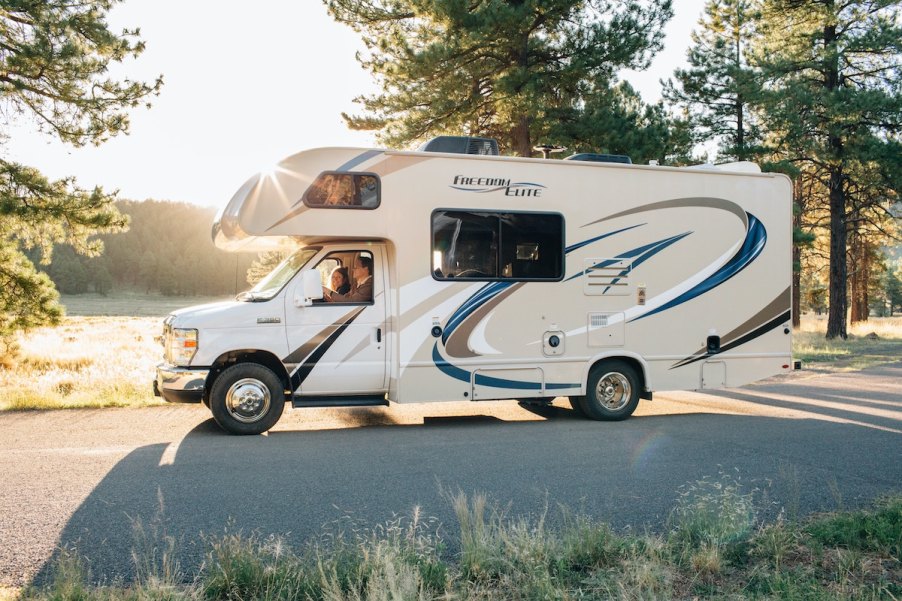
How Long Do Most RVs Last?
Many people bought RVs during the Pandemic, and some have never owned one before. Now that their RVs are beginning to get some mileage on them, many new owners are beginning to wonder how long their RVs will last. We have the answers, as well as a few tips to keep your RV on the road longer.
How long do RVs typically last?
Given what a huge investment RVs are, it’s good to know exactly how much excitement you’re going to get. The good news is that you can get anywhere from 10 to 20 years for Class A or Class B RVs, according to Oaktree Motorhomes.
Class A RVs are luxury motor homes that can range from 29 to 45 feet in length. In contrast, Class B RVs are more compact and range from 18 to 24 feet. These RVs often last longer than Class A.
Another factor is the mileage. If you put 10,000 miles on an RV in a year, then it obviously won’t last as long as someone who only puts that much mileage on in five years. With this in mind, an RV can typically last around 100,000 miles.
There are some RVs that are still on the road around 300,000 miles. There are several factors that affect this, however. Some are within the owner’s control, but many are not.
What affects the lifespan of an RV?
It’s no secret that the amount of miles you travel is going to impact how long your RV will be on the road. What you may not consider is that the number of people will as well. It increases the weight you’re carrying, not only thanks to the increased number of individuals but their luggage and extra food.
Then there’s the kid factor. If you’re bringing along small children, most will typically be harder on an RV than an adult would be. There will be spills, broken items like the toilet that need to be repaired, and more. The extra wear and tear will add up.
The terrain you travel over is another factor to take into consideration. If you stick to well-maintained roadways, you’ll have less damage to your vehicle than if you’re going over back roads. The beach is another factor, as the salt in the air will cause rusting.
Other factors you need to take into consideration include brake wear, tire blowouts, plumbing and water line issues, and electrical problems. The good news is that you can help mitigate some of this with just a few simple steps.
What can you do to keep your RV running longer?
Don’t skip on maintenance, especially if you’re getting ready to head out on a long road trip. It’s better to find a major problem before you set out than it is to find yourself stranded in the middle of nowhere.
Some things you can handle on your own. For example, check your lighting. If it’s not working, it may just need a new bulb. Also, flush your fresh water tanks at least twice a year. There are odor blockers available if you are sensitive to smells.
Have your generator serviced to make sure you aren’t stuck somewhere with no power. You can also remove your battery if you’re not going to be driving it for a while. Make sure you store it in a clean, dry place. Just make sure you charge it back up before driving off into the sunset.
Other tips to keep your RV on the road for years to come include cleaning the roof, visually checking the tires for wear and tear, and performing basic cleaning measures. There’s obviously no guarantee that your RV won’t break down. These measures will at least keep you on the road for longer, however.


